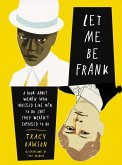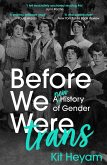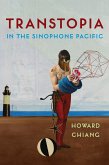In imperial China, people moved away from the gender they were assigned at birth in different ways and for many reasons. Eunuchs, boy actresses, and clergy left behind normative gender roles defined by family and procreation. "Stone maidens"-women deemed physically incapable of vaginal intercourse-might depart from families or marriages to become Buddhist or Daoist nuns. Anatomical males who presented as women sometimes took a conventionally female occupation such as midwife, faith healer, or even medium to a fox spirit. Yet they were often punished harshly for the crime of "masquerading in women's attire," suspected of sexual predation, even when they had lived peacefully in their communities for many years.
Exploring these histories and many more, this book is a groundbreaking study of transgender lives and practices in late imperial China. Through close readings of court cases, as well as Ming and Qing fiction and nineteenth-century newspaper accounts, Matthew H. Sommer examines the social, legal, and cultural histories of gender crossing. He considers a range of transgender experiences, illuminating how certain forms of gender transgression were sanctioned in particular social contexts and penalized in others. Sommer scrutinizes the ways Qing legal authorities and literati writers represented and understood gender-nonconforming people and practices, contrasting official ideology with popular mentalities. An unprecedented account of China's transgender histories, this book also sheds new light on a range of themes in Ming and Qing law, religion, medicine, literature, and culture.
Exploring these histories and many more, this book is a groundbreaking study of transgender lives and practices in late imperial China. Through close readings of court cases, as well as Ming and Qing fiction and nineteenth-century newspaper accounts, Matthew H. Sommer examines the social, legal, and cultural histories of gender crossing. He considers a range of transgender experiences, illuminating how certain forms of gender transgression were sanctioned in particular social contexts and penalized in others. Sommer scrutinizes the ways Qing legal authorities and literati writers represented and understood gender-nonconforming people and practices, contrasting official ideology with popular mentalities. An unprecedented account of China's transgender histories, this book also sheds new light on a range of themes in Ming and Qing law, religion, medicine, literature, and culture.
Dieser Download kann aus rechtlichen Gründen nur mit Rechnungsadresse in A, D ausgeliefert werden.









